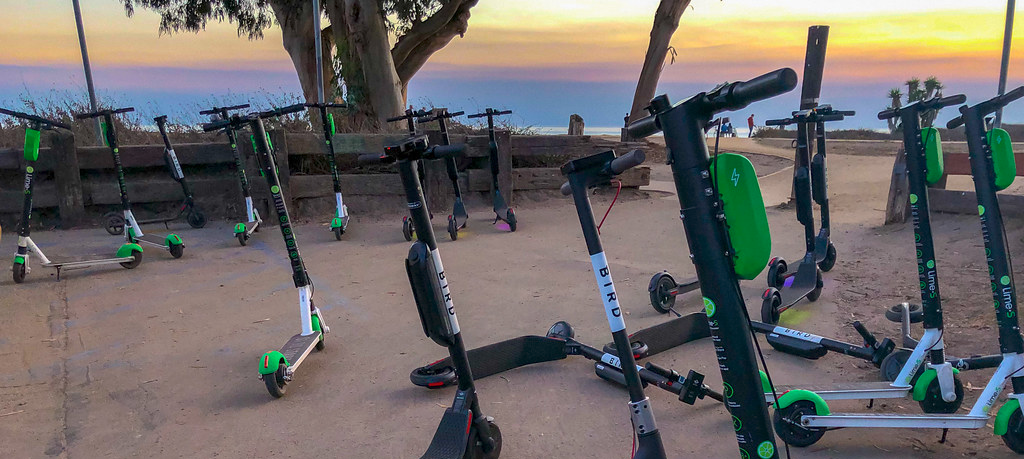We are in the midst of a technology-induced paradigm shift in transportation. Ride-hailing services, short-term car rentals, and autonomous vehicles are altering the transportation landscape. Within this environment, electric, dockless, scooter-sharing services are experiencing explosive growth and adoption in urban centers. Surprisingly, however, little is understood about the impact of scooter-share on existing city services. In a recent paper published in the Journal of Transport Geography, Professor McKenzie explores the spatiotemporal usage patterns of scooter-share services and compares them with traditional bike-sharing. The results indicate that the two services are used in substantially different ways with bike-share usage reflecting commuter behavior and scooter-share representing leisure activities.

